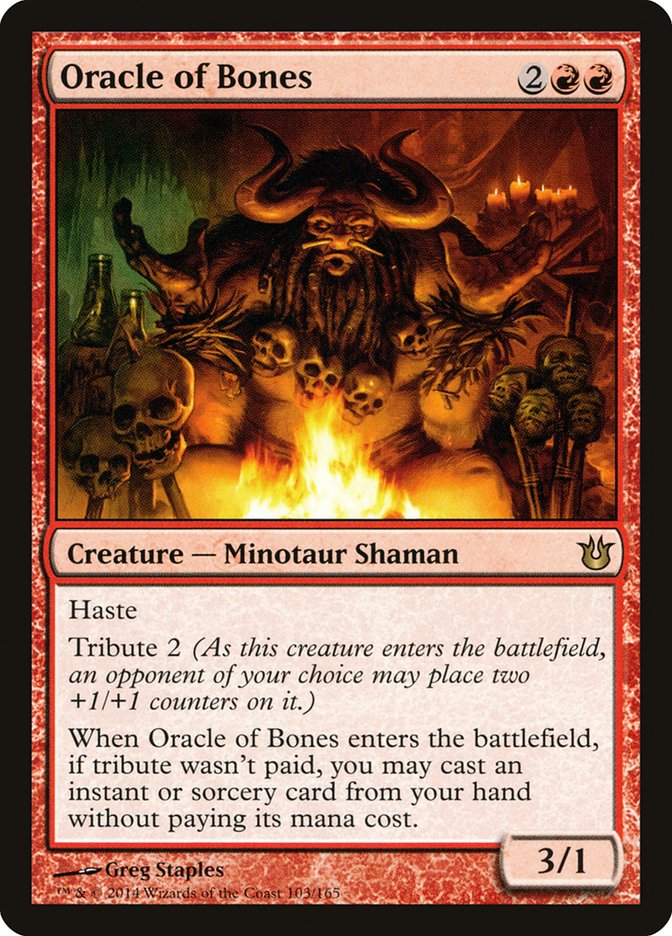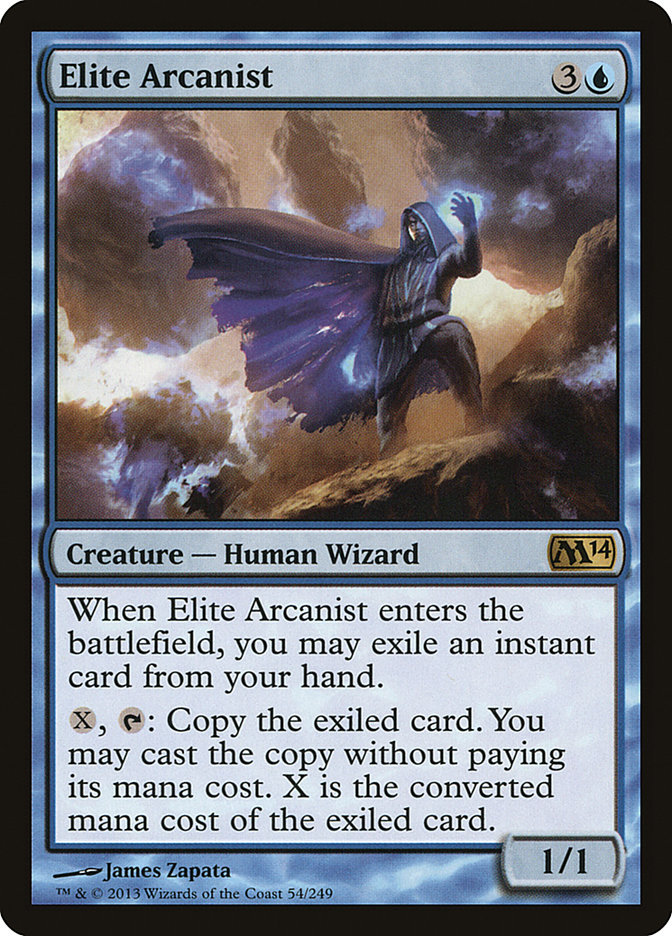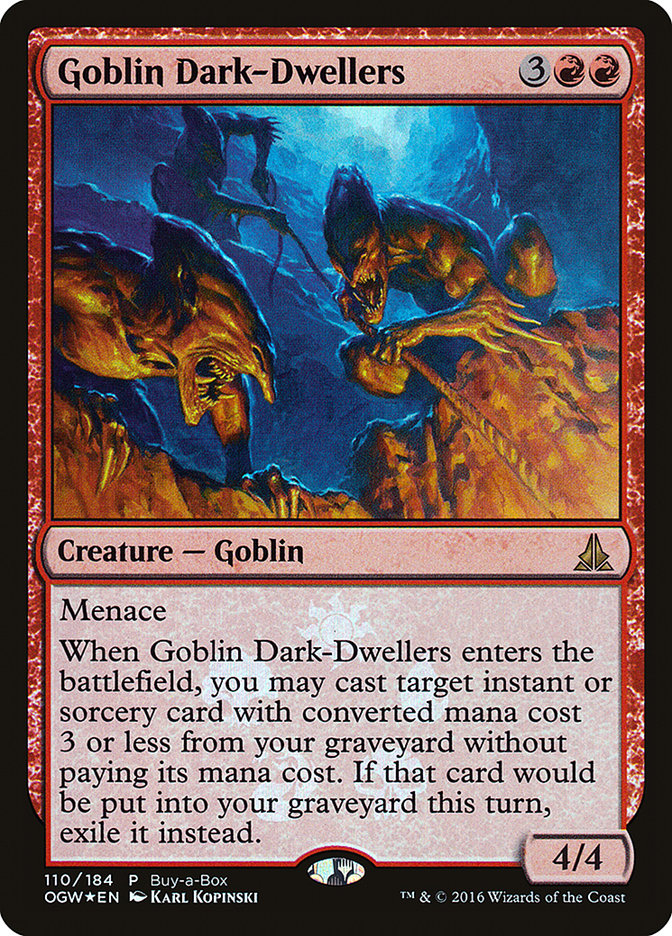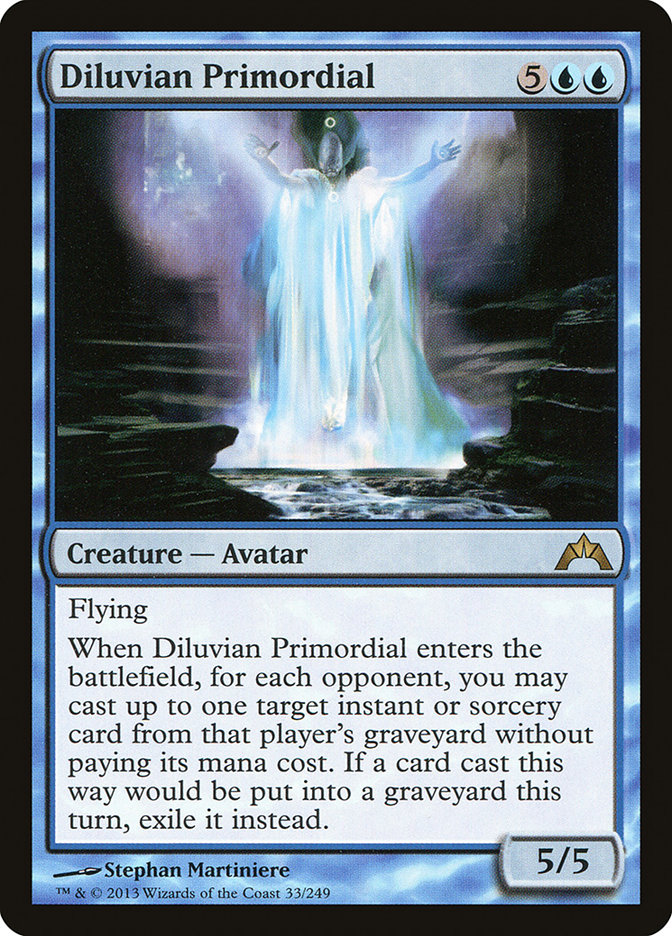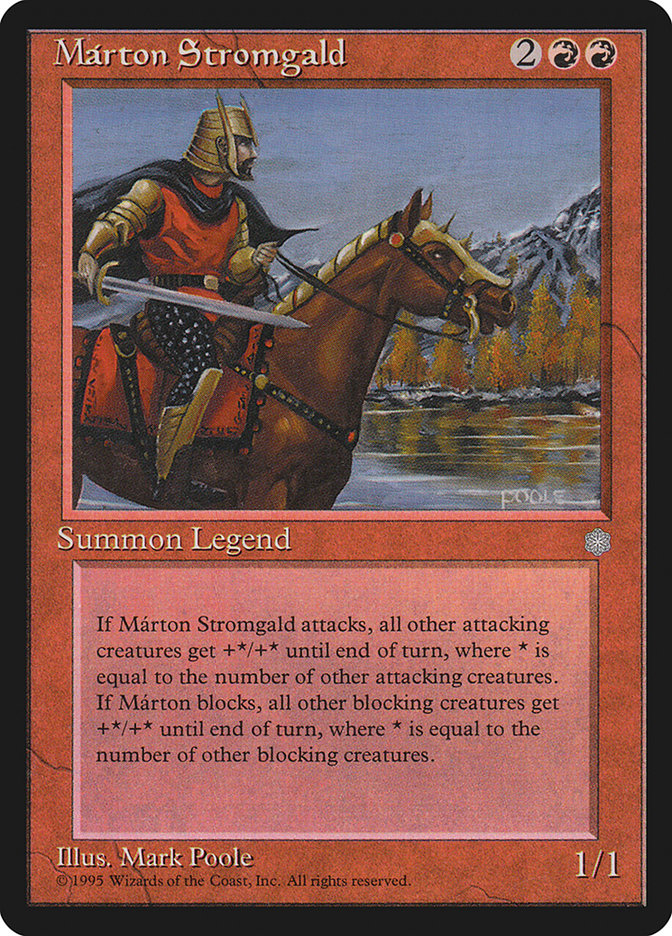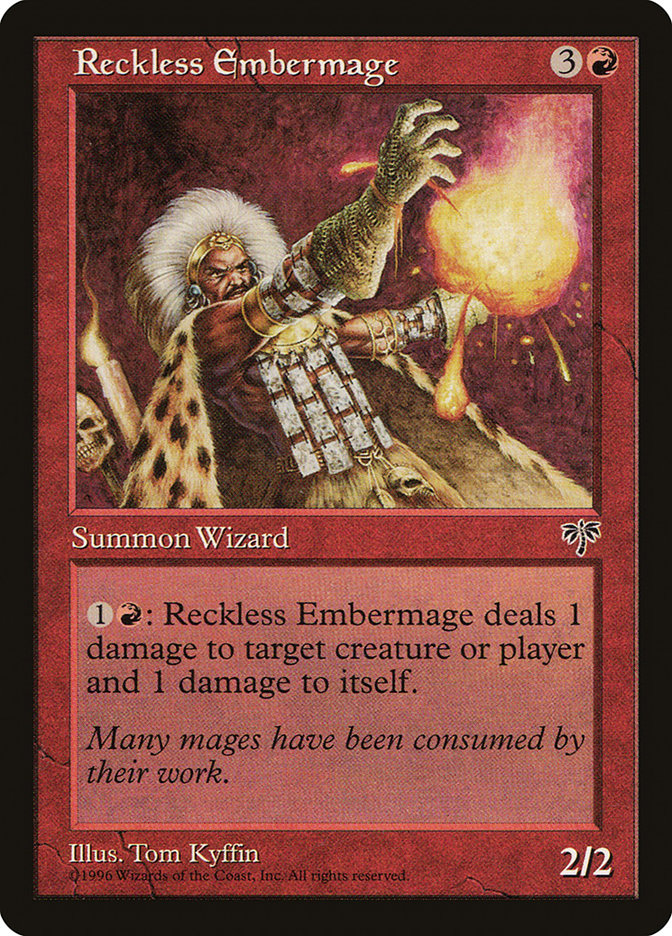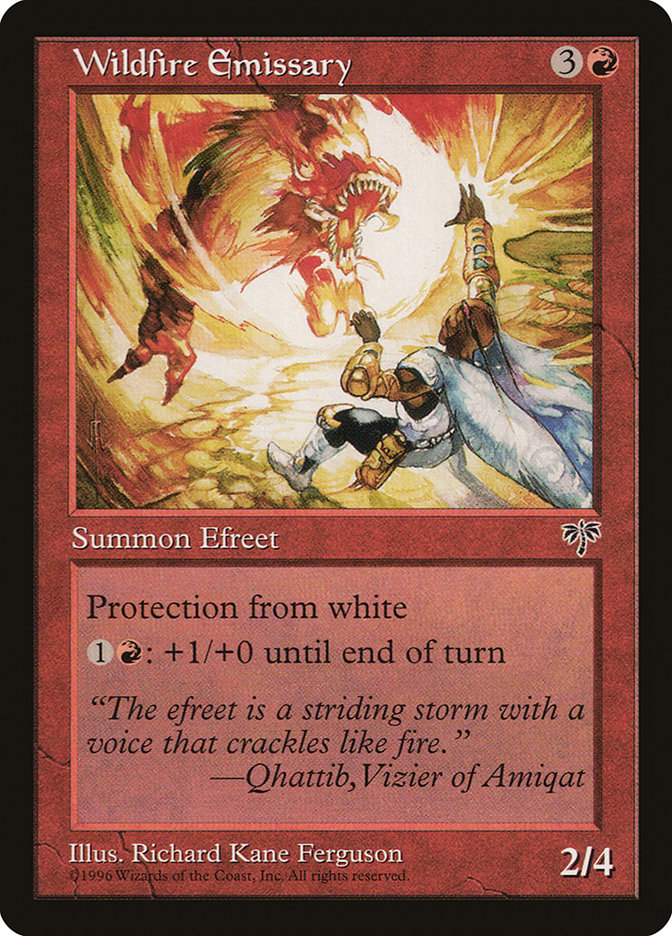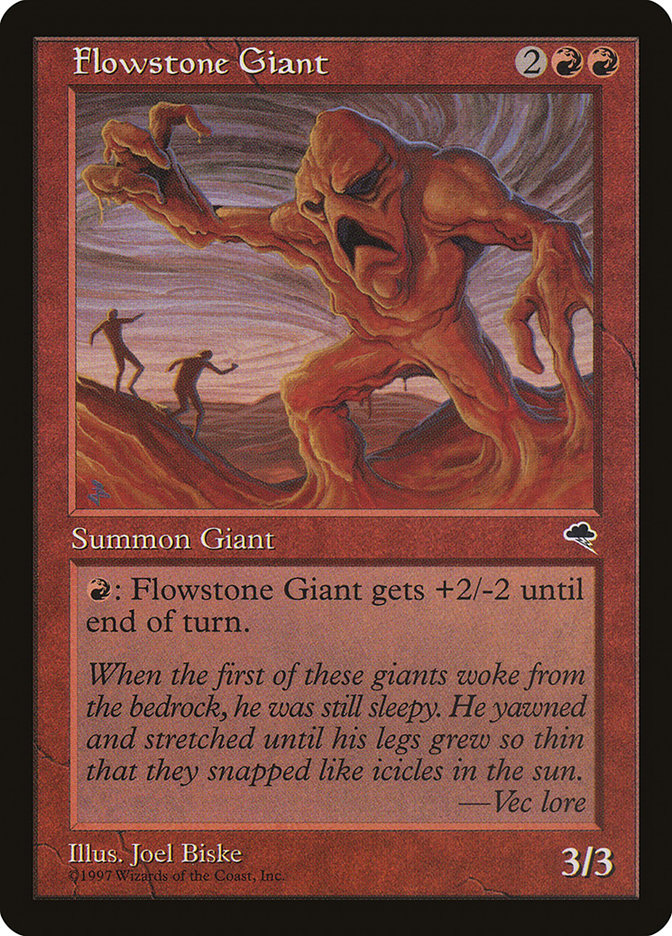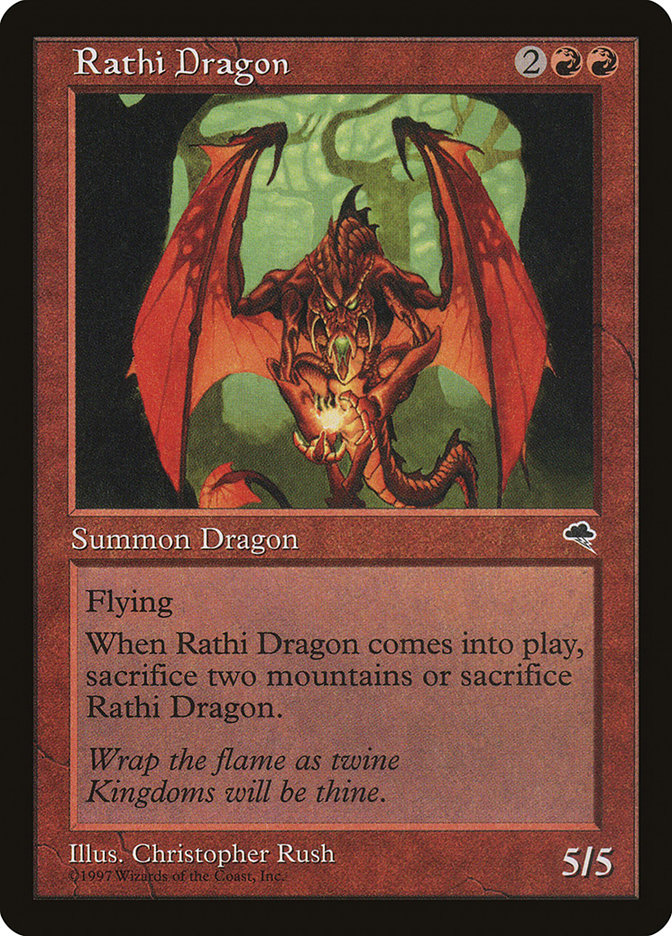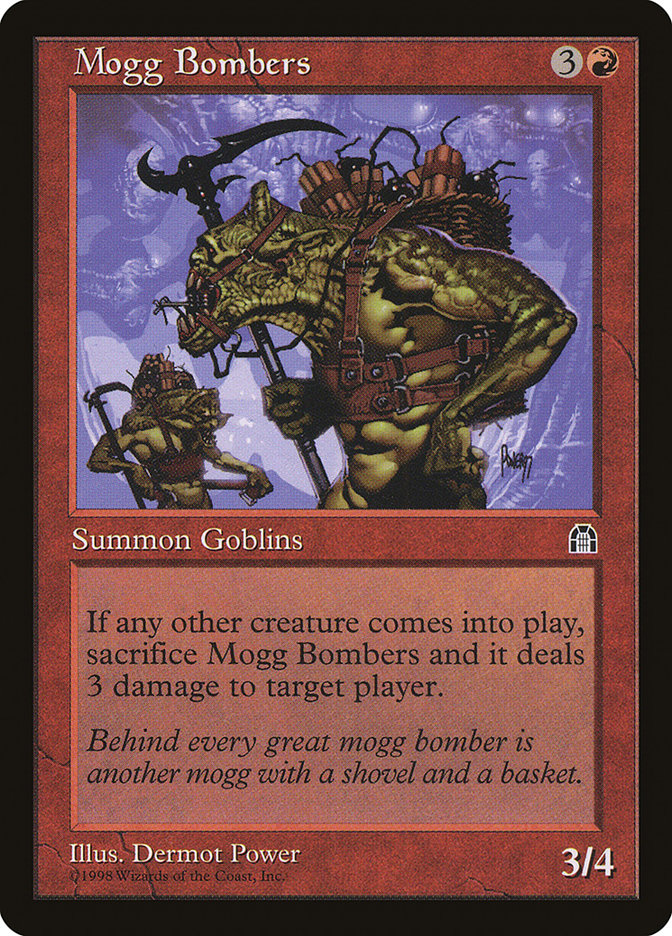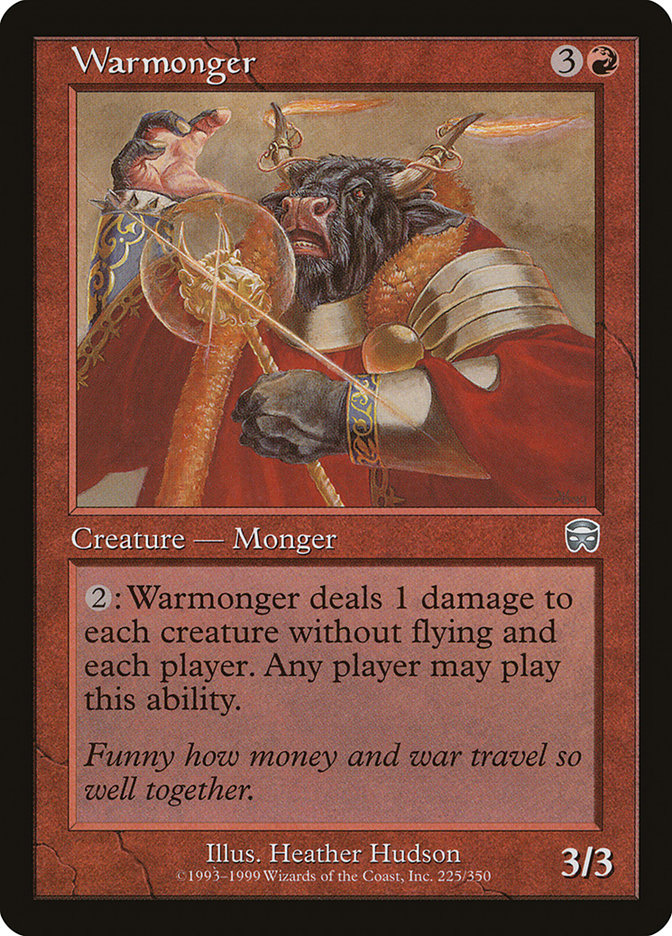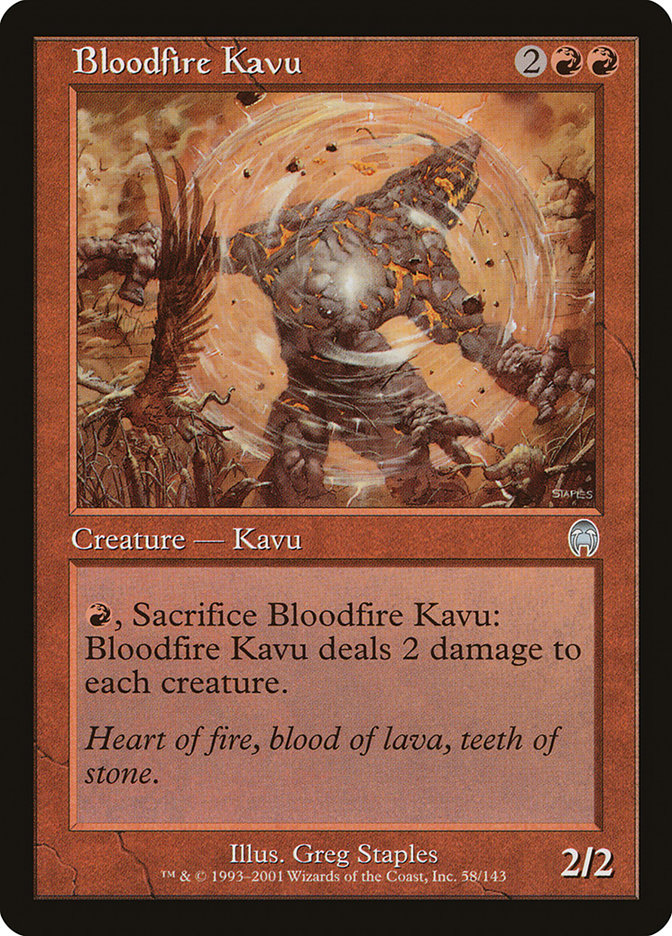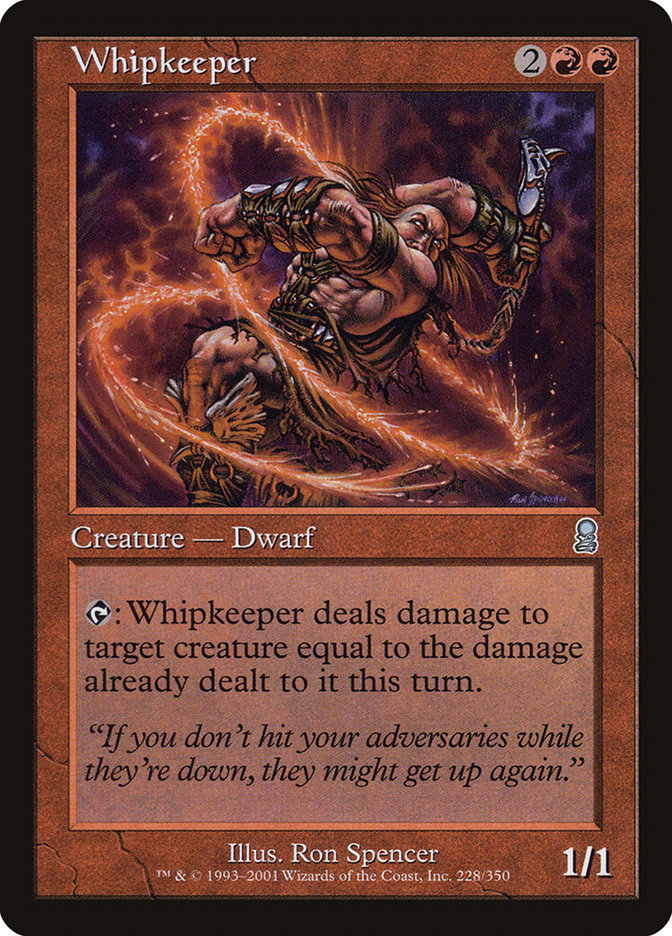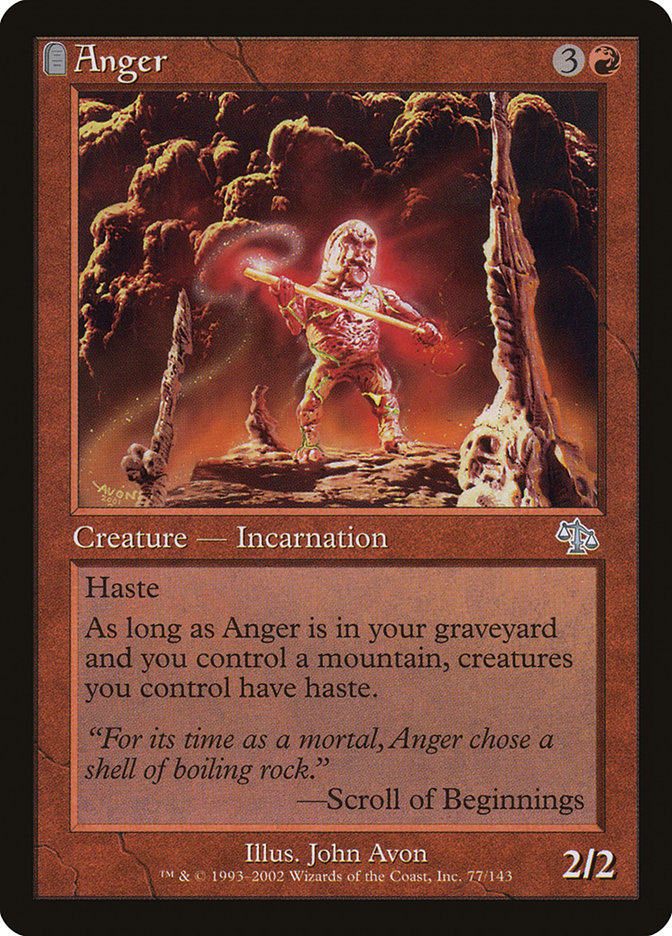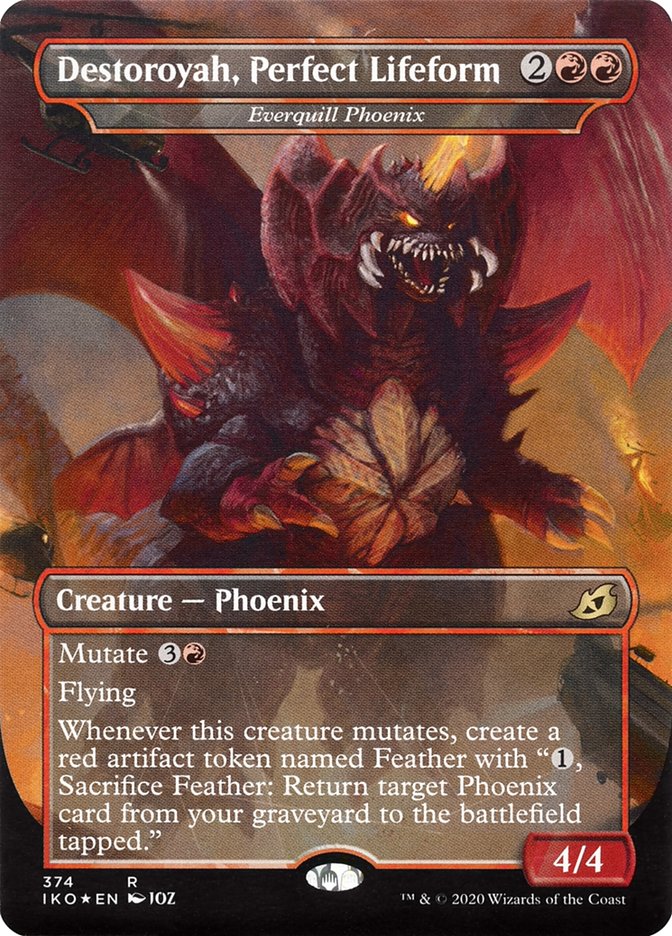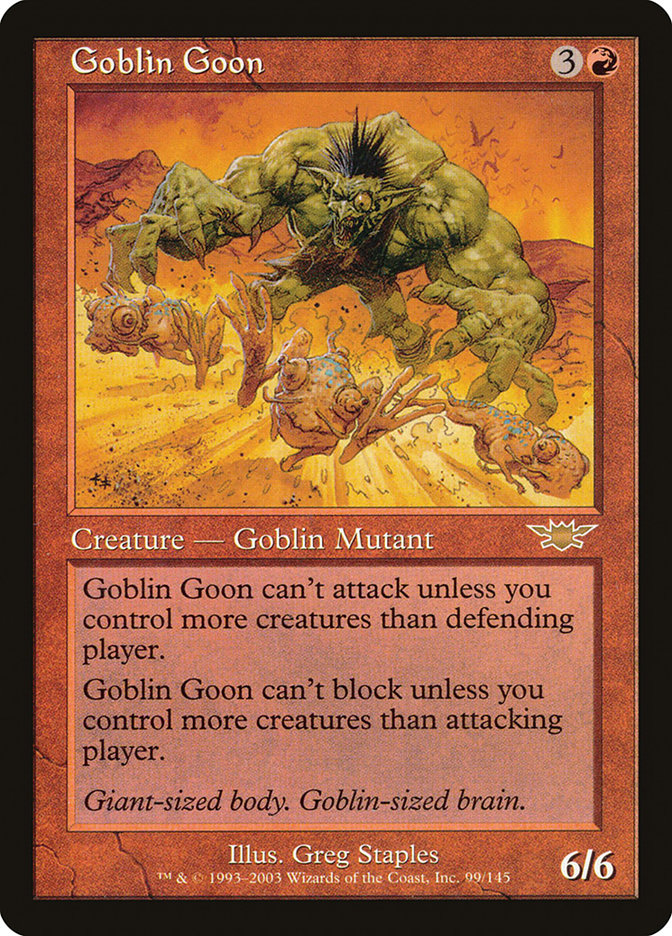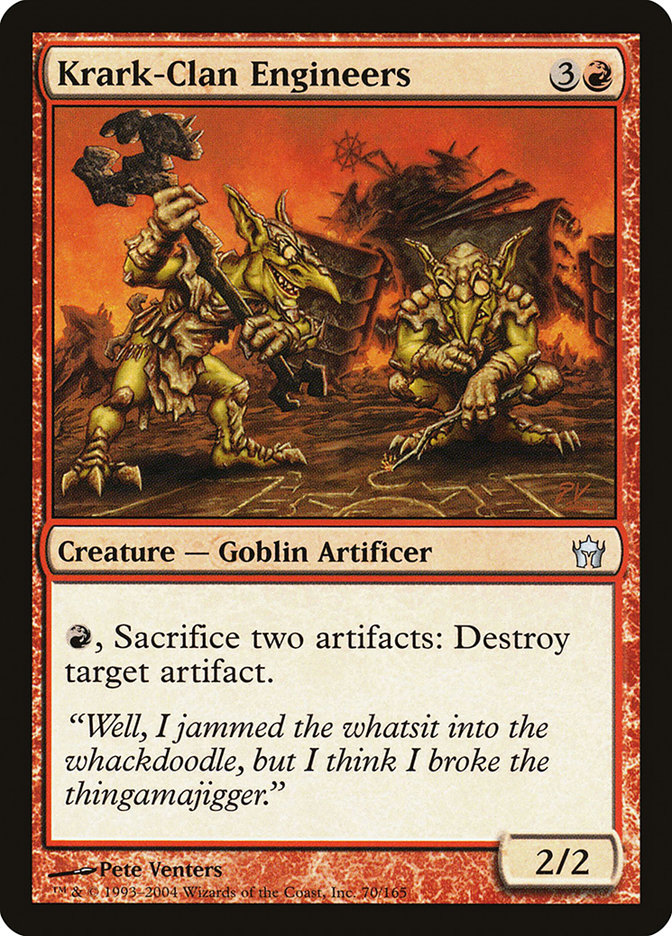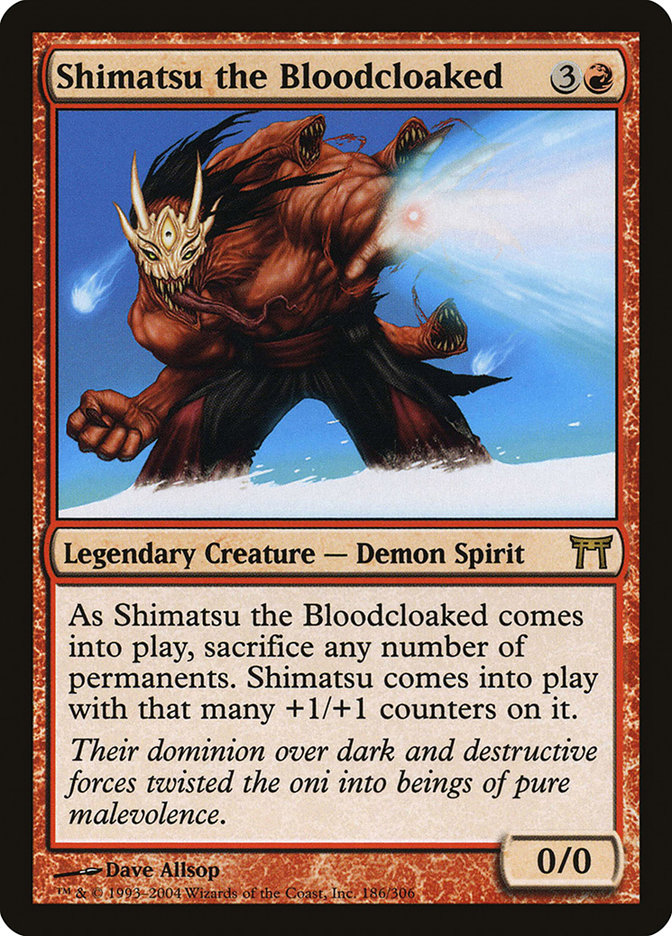Oráculo óseo Carta MTG
| El coste de maná | |
| Costo de maná convertido | 4 |
| Rareza | Extraña |
| Tipo | Criatura — Chamán minotauro |
| Habilidades | Haste,Tribute |
| Liberado | 2014-02-07 |
| Coleccione símbolo | |
| Coleccione nombre | Born of the Gods |
| Coleccione código | BNG |
| Fuerza | 3 |
| Tenacidad | 1 |
| Número | 103 |
| Frame | 2003 |
| Disposición | Normal |
| Border | Negra |
| Ilustrado por | Greg Staples |
Texto de la carta
Prisa. Tributo 2. (En cuanto esta criatura entre al campo de batalla, el oponente de tu elección puede colocar dos contadores +1/+1 sobre ella.) Cuando el Oráculo óseo entre al campo de batalla, si no se pagó tributo, puedes lanzar una carta de instantáneo o conjuro de tu mano sin pagar su coste de maná.
Cartas Similares
Oracle of Bones se presenta como una adición única al reino de las cartas de criatura con beneficios adicionales en Magic: The Gathering. A simple vista, puede recordar a jugadores experimentados a otra carta: Elite Arcanist. Ambos tienen la habilidad de exiliar una carta instantánea o de conjuro, sin embargo, Oracle of Bones aporta un giro interesante con su mecánica de tributo, ofreciendo el potencial para lanzar un hechizo de forma gratuita de inmediato si el oponente elige no pagar el tributo.
De manera comparable, Goblin Dark-Dwellers brinda una oportunidad única para lanzar una carta instantánea o de conjuro desde el cementerio sin pagar su coste de mana al entrar al campo de batalla. Aunque los Dark-Dwellers carecen del riesgo del tributo, sí tienen un impacto directo en el juego al proporcionar un valor definido. Diluvian Primordial es otra criatura con la habilidad de volver a lanzar hechizos, arrebatando una carta instantánea o de conjuro del cementerio de cada oponente, lo cual puede cambiar el curso del juego en formatos multijugador.
En última instancia, Oracle of Bones destaca con su potencial para lanzar un hechizo sin coste alguno y los juegos mentales inducidos por la mecánica de tributo, convirtiéndolo en una elección distintiva para jugadores que buscan incorporar una mezcla de presión de criaturas y utilidad de hechizos en sus estrategias de MTG.
Cartas similares a Oráculo óseo por color, tipo y coste de maná
Pros de la carta
Ventaja de cartas: Cuando juegas Oracle of Bones, obtienes el potencial de lanzar un hechizo de forma gratuita si el tributo no es pagado. Esto puede llevar a un cambio significativo a tu favor, potencialmente colocando un hechizo de alto costo en el campo mucho antes de lo habitual, aumentando así tu ventaja de cartas sin gastar recursos de tu mano.
Aceleración de recursos: Oracle of Bones ofrece una forma de aceleración si tu oponente elige no pagar el tributo. La habilidad de lanzar un hechizo costoso sin pagar su coste de mana puede acelerar significativamente tu plan de juego, actuando efectivamente como un rampa pseudoal omitir los requerimientos de mana.
Velocidad instantánea: Aunque Oracle of Bones en sí no es un instantáneo, la flexibilidad de lanzar otro hechizo de forma gratuita al entrar en el campo de batalla puede imitar jugadas a velocidad instantánea. Esto puede sorprender a un oponente no preparado y permitir jugadas poderosas incluso durante su turno, si elige no honrar el tributo.
Contras de la carta
Requisito de descarte: Jugar Oracle of Bones a menudo depende de tener una carta que no sea criatura en la mano para beneficiarse de su habilidad de tributo. Sin uno, el potencial de ventaja disminuye, limitando tus opciones estratégicas especialmente cuando tu mano está casi vacía.
Costo de mana específico: Oracle of Bones requiere una mezcla específica de mana: dos genéricos y dos rojos. Este requisito puede complicar la construcción del mazo, orientándolo hacia bases de mana predominantemente rojas y posiblemente restringiendo su inclusión en mazos de colores de mana más diversos.
Costo de mana comparativamente alto: Con un costo de cuatro de mana, Oracle of Bones puede entrar en juego un poco tarde en comparación con otras criaturas versátiles de tres de mana. Su impacto en el tablero podría ser opacado por jugadas más rápidas y efectivas disponibles dentro del mismo rango de mana.
Razones para incluirlo en tu colección
Versatilidad: Oracle of Bones ofrece una flexibilidad única para los mazos centrados en rojo, ya que puede desempeñarse tanto como un cuatro de mana agresivo con prisa como un lanzador de hechizos potencial sin pagar costos de mana si no se paga el tributo, adaptándose a diferentes situaciones de juego.
Potencial de combo: Con su habilidad de tributo, esta carta puede avanzar significativamente las estrategias de combo al potencialmente soltar hechizos de alto impacto de forma gratuita, proporcionando un cambio repentino en el estado del tablero o ventaja estratégica.
Relevancia en el meta: En un meta donde los oponentes pueden tener dificultades para lidiar con múltiples amenazas o donde los hechizos gratuitos pueden cambiar el rumbo, Oracle of Bones ocupa un nicho particular, especialmente en formatos donde el tempo y la velocidad son factores decisivos.
Cómo vencerlo
Oracle of Bones presenta un desafío interesante para los jugadores que buscan mantener el control del juego. Esta carta de criatura de la expansión Born of the Gods tiene una habilidad única que puede cambiar el rumbo de una partida al potencialmente permitirte lanzar un hechizo sin pagar su coste de mana. Esto sucede si tu oponente elige no permitirte tener el Tributo cuando Oracle of Bones entra en el campo de batalla. Por lo tanto, contrarrestar esta carta eficazmente requiere una combinación de estrategia y anticipación cuidadosa.
Un enfoque es utilizar hechizos de eliminación a velocidad instantánea para eliminar a Oracle of Bones antes de que su habilidad de Tributo se active. También tienes la opción de permitir el Tributo, aceptando que Oracle of Bones gane poder pero evitando que tu oponente obtenga un hechizo gratuito. Además, mantener contramagias listas puede neutralizar la amenaza de un lanzamiento gratuito si tu oponente intenta aprovechar la habilidad de Tributo de Oracle of Bones. En última instancia, la flexibilidad y la previsión son clave. Comprender cuándo interrumpir los planes de tu oponente y cuándo permitirles realizar su jugada sin obtener ventaja es crucial para superar la amenaza que representa Oracle of Bones.
Donde comprar
Si estás buscando comprar una carta MTG Oráculo óseo de un coleccione específico como Born of the Gods, existen varias opciones confiables que debes considerar. Una de las fuentes principales es tu tienda de juegos local, donde a menudo puedes encontrar paquetes de refuerzo, cartas individuales y mazos preconstruidos de colecciones actuales y pasadas. A menudo ofrecen el beneficio adicional de una comunidad donde puedes intercambiar con otros jugadores.
Para un inventario más amplio, particularmente de colecciones más antiguos, mercados en línea como TCGPlayer, Card Kingdom y Card Market ofrecen amplias selecciones y te permiten buscar cartas de colecciones específicos. Las plataformas de comercio electrónico más grandes como eBay y Amazon también tienen listados de varios vendedores, lo que puede ser un buen lugar para buscar productos sellados y hallazgos raros.
Además, el sitio oficial de Magic suele tener un localizador de tiendas y listas de minoristas para encontrar Wizards of the Productos con licencia costera. Recuerde comprobar la autenticidad y el estado de las cartas al comprarlas, especialmente a vendedores individuales en mercados más grandes.
A continuación se muestra una lista de algunos sitios web de tiendas donde puede comprar las Oráculo óseo y otras cartas MTG:
 COMPRAR
COMPRAR BurnMana es un socio oficial de TCGPlayer
- eBay
- Card Kingdom
- Card Market
- Star City Games
- CoolStuffInc
- MTG Mint Card
- Hareruya
- Troll and Toad
- ABU Games
- Card Hoarder Magic Online
- MTGO Traders Magic Online
Ver productos MTG
Legalidades
Formatos de Magic the Gathering donde Oráculo óseo tiene restricciones
| Formato | Legalidad |
|---|---|
| Commander | Legal |
| Legacy | Legal |
| Modern | Legal |
| Oathbreaker | Legal |
| Vintage | Legal |
| Duel | Legal |
| Pioneer | Legal |
| Penny | Legal |
Reglas e información
La guía de referencia para las reglas de las cartas Oráculo óseo de Magic: The Gathering proporciona las reglas oficiales, las erratas emitidas, así como un registro de todas las modificaciones funcionales que se han producido.
| Fecha | Texto |
|---|---|
| 01/02/2014 | Si la carta tiene en su coste de maná, debes elegir 0 como su valor. |
| 01/02/2014 | Si el oponente paga tributo, la criatura entrará al campo de batalla con el número especificado de contadores +1/+1 sobre ella. No entrará al campo de batalla y luego se le colocarán los contadores +1/+1. |
| 01/02/2014 | Si la habilidad desencadenada tiene un objetivo, ese objetivo no se conocerá mientras la carta de criatura con tributo esté en la pila. |
| 01/02/2014 | Si lanzas una carta "sin pagar su coste de maná", no puedes pagar costes alternativos como los costes de sobrecarga. Sin embargo, puedes pagar costes adicionales como los costes de coste adicional. Si la carta tiene costes adicionales obligatorios, debes pagar esos. |
| 01/02/2014 | Si decides lanzar una carta dividida con fusión sin pagar su coste de maná, puedes lanzar ambas mitades. |
| 01/02/2014 | Si quieres lanzar una carta de esta manera, la lanzas como parte de la resolución de la habilidad desencadenada. Las restricciones de tiempo basadas en el tipo de carta (como conjuro) se ignoran. Otras restricciones de lanzamiento (como "Lanzar -sta carta] solo antes de que se declaren los atacantes") no lo son. |
| 01/02/2014 | Los jugadores no pueden responder a la decisión del tributo antes de que la criatura entre al campo de batalla. Es decir, si el oponente no paga el tributo, la habilidad desencadenada se activará antes de que algún jugador tenga la oportunidad de retirar la criatura. |
| 01/02/2014 | La elección de si pagar tributo se hace al entrar en el campo de batalla la criatura con tributo. En ese momento, es demasiado tarde para responder al hechizo de la criatura. Por ejemplo, en un juego multijugador, los oponentes no sabrán si se pagará el tributo o qué oponente será elegido para pagar el tributo o no al decidir si contrarrestar el hechizo de la criatura. |
| 01/02/2014 | La habilidad desencadenada se resolverá incluso si la criatura con ofrenda no está en el campo de batalla en ese momento. |
| 18/04/2017 | Para los efectos que verifiquen qué jugador puso contadores en la criatura que entra, el jugador elegido para pagar el tributo coloca esos contadores en ella, no el controlador de la criatura. |
